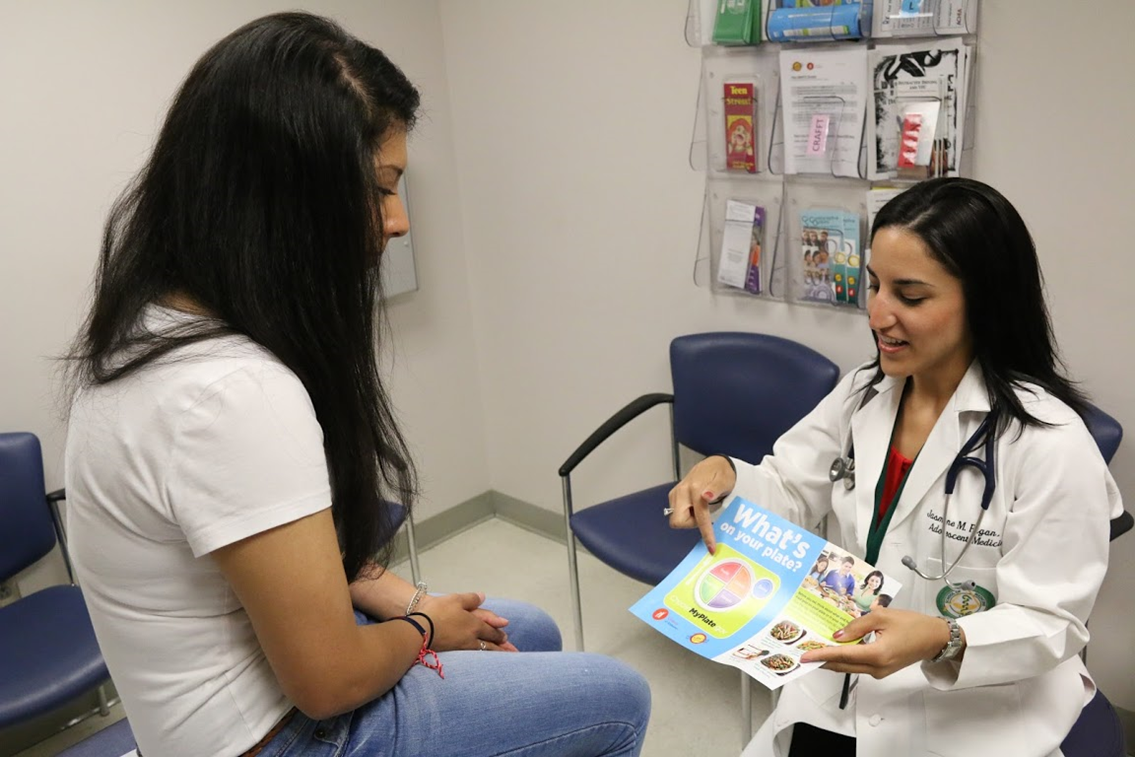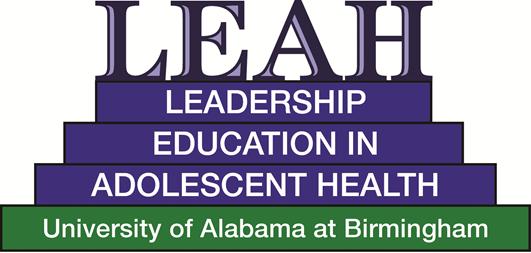Welcome to the Adolescent Medicine Fellowship Program and congratulations on choosing a career in Adolescent Medicine! We here at UAB and Children's Hospital are pleased that you are interested in us. I hope that you will visit Birmingham and learn more about our collaborative, campus-wide program. We want to make sure that your adolescent fellowship is one of the most valuable experiences of your life!
About Our Program
The UAB Adolescent Medicine Subspecialty Fellowship program is an RRC approved training program for physicians who have completed specialty training in pediatrics, family medicine, or internal medicine. The three year pediatric fellowship includes comprehensive interdisciplinary training based upon ACGME core competencies. Fellows participate actively in teaching of medical students, residents, and health care trainees from nutrition, nursing and other health-related fields. The core faculty members of the program are physicians, nurses, psychologists, dietitians, and other health professionals with special training and expertise in adolescent health issues.
Our program provides a wide array of clinical and scholarly experiences enabling fellows to gain sufficient knowledge and skills in all areas of Adolescent Health and Medicine. Fellows are credentialed at Children's of Alabama, the only free-standing hospital for children and adolescents in Alabama and at the world-renowned UAB Hospital. Fellows can participate in master's level training in public health, health administration, or other health-related fields, as suits their individual interests.
What makes our program unique?
Adolescent Medicine fellows participate in the interdisciplinary Maternal and Child Health Bureau funded Leadership Education in Adolescent Health (LEAH) training program which encompasses:
·MCH Leadership Training
·Community Program Development and Involvement
·Policy and Advocacy Training
·Professional Networking Opportunities
Curriculum
Diversity of Opportunity
|
UAB is recognized as a campus that thrives upon interdisciplinary collaboration. Centers are organized across school boundaries in order to facilitate research, teaching, advocacy, and clinical care. Examples of these Centers include: UAB Center for Health Promotion, UAB Comprehensive Cancer Center, UAB Minority Health Research Center, and the UAB Center for AIDS Research. Fellows are encouraged to develop mentorship relationships with faculty in their particular area of interest and to include faculty from collaborating schools and disciplines on their scholarship oversight committee. Fellows have a wide variety of options for advocacy experiences through the interdisciplinary UAB centers mentioned above and also through community based venues including the Alabama Department of Public Health, Jefferson County Child Policy Council, the Alabama Campaign to Prevent Teen Pregnancy, the Mayor's Task Force on Youth and Families, AIDS Alabama, and the Alabama Obesity Task Force.  |
|
Instructional and Clinical Experience
Our program provides a wide array of instructional and clinical experiences enabling fellows to gain sufficient knowledge of and skill in the following areas of adolescent medicine:
-
Physical, physiologic, and psychosocial changes associated with pubertal maturation and its disorders
-
Organ-specific conditions frequently encountered during the teenage years
-
The effects of adolescence on pre-existing conditions
-
Mental illnesses of adolescence (including psychopharmacology and psychophysiologic disorders
-
Family dynamics, conflicts, and problems
-
Adolescent parenthood
-
Disorders of cognition, learning, attention, and education
-
Social and emotional development of the adolescent, including cultural/ethnic diversity
-
Chronic handicapping conditions
-
Disorders of the endocrine system and metabolism
-
Sexuality, including sexual identity, development, and sexual health problems
-
Sexually transmitted diseases (prevention and treatment)
-
Reproductive health issues of males and females
-
Nutrition, including normal needs, health problems and deficiencies, and nutritional needs of special populations
-
Health promotion, disease prevention, screening, and immunizations
-
Infectious diseases, including epidemiology, microbiology, and treatment
-
Pharmacology and toxicity
-
Substance abuse, including alcohol and tobacco
-
Eating disorders, e.g. Obesity, anorexia nervosa, and bulimia
-
Social/environmental morbidities including physical and sexual abuse, risk-taking behaviors, injuries, sexual assault and violence
-
Juvenile justice
-
Sports medicine
-
Legal and ethical issues including advocacy
-
Interviewing/short-term counseling skills for teens and their parents
-
Public health issues including demographics, social epidemiology, population-based interventions, and adolescent health promotion
Our Team


